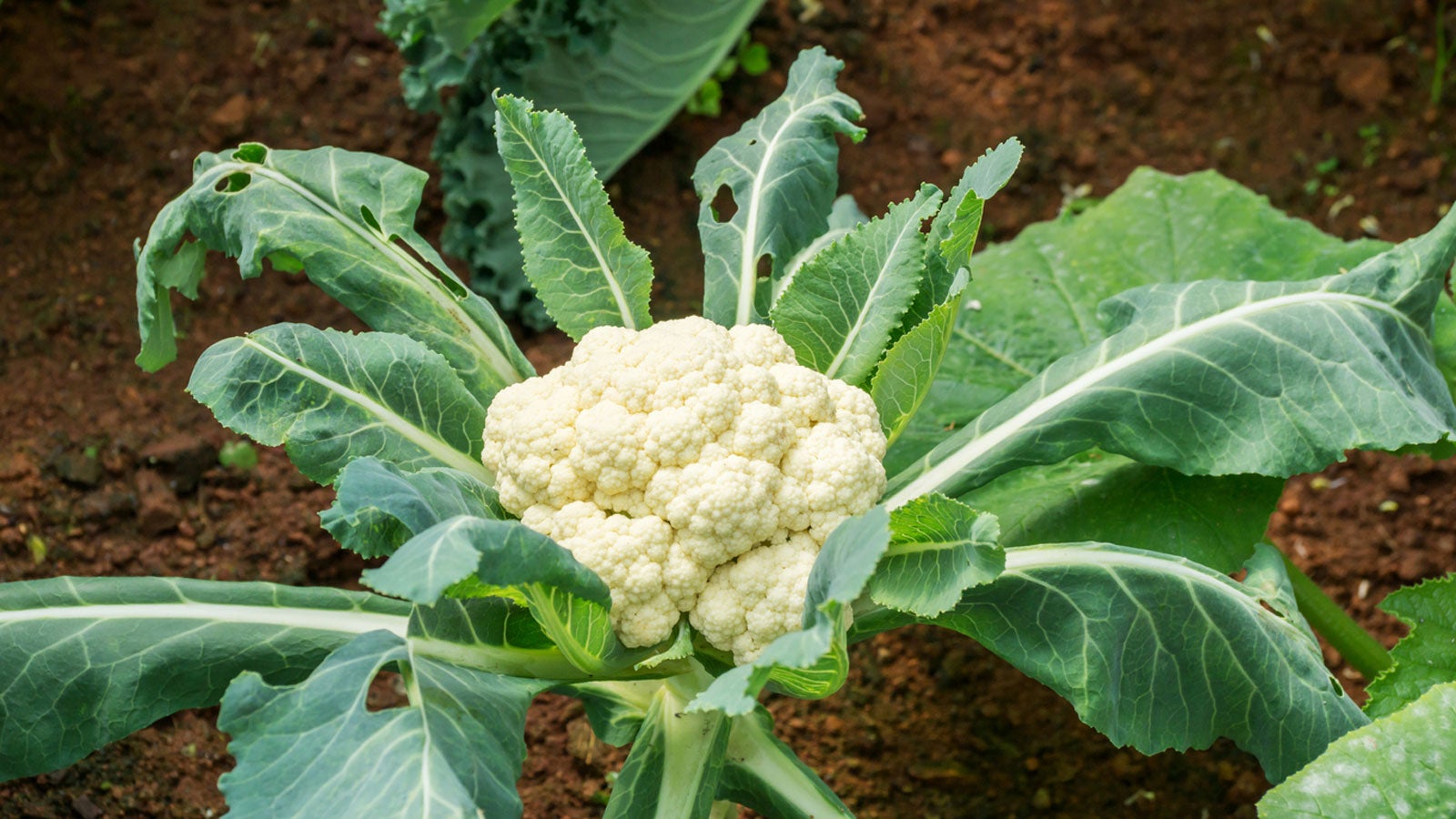
Sign up for the Gardening Know How newsletter today and receive a free copy of our e-book "How to Grow Delicious Tomatoes".
You are now subscribed
Your newsletter sign-up was successful
If you’ve been wondering how to plant cauliflower (Brassica oleracea var. botrytis), you’ll find that it is not difficult once you know what it likes. Growing cauliflower can be done alongside other closely related plants like broccoli, kale and turnips.
Many gardeners don’t bother growing cauliflower, as it has the reputation of being one of the more temperamental crops and with good reason. Bringing cauliflower to fruition means knowing when is the best time to plant and when to harvest cauliflower. Read on to learn how to plant cauliflower and other helpful cauliflower planting tips to make this crop a success.
Best Time to Plant Cauliflower
Cauliflower is a cool season veggie from the Brassicaceae family, which includes broccoli, and, in fact, cauliflower is often referred to as ‘heading broccoli.’ Unlike broccoli, however, which produces multiple side shoots, cauliflower only produces a single head which means you have one chance to get it right.
The main thing to remember is that the plant thrives in temperatures around 60-65 F. (16-18 C.) and no higher than 75 F. (24 C.). Of all the cole crops, cauliflower is the most sensitive to temperature. When temperatures exceed 75 F., the plants have a tendency to button or bolt.
The best time to plant most varieties of cauliflower is in the spring so they grow and produce their flower heads before summer’s hot temperatures ramp up. Other varieties are suited for mid-summer planting for a fall harvest. A good fall recommendation is its pointy, green Romanesco cousin.
How to Plant Cauliflower
For spring sown cauliflower, start seed indoors in April. For fall crops, start seed in July, either sown indoors or direct sown in the garden. Do not transplant any earlier than 2-3 weeks prior to the average frost-free date for your area. This can be rather tricky in that it is important to start cauliflower early enough so it matures before the heat arrives but not so early that cold spring temps damage the plants.
Sow seeds ¼ inch (6 mm.) deep in peat pots or in furrows in well-draining potting soil. Once the seeds have germinated, continue to grow them in an area of direct sun or under grow lights and maintain a temperature of 60 F. (16 C.). Keep the seedlings moist.
Sign up for the Gardening Know How newsletter today and receive a free copy of our e-book "How to Grow Delicious Tomatoes".
Transplant the plants 2 feet (.5 m.) apart in rows that are 30-36 inches (76-91 cm.) apart.
Cauliflower Planting Tips
Early maturing varieties are more susceptible to buttoning than later cultivars.
Keep the plants moist but not soggy. Mulch around young plants to help retard weeds and retain moisture.
Harden off seedlings for 5 days to a week before transplanting outside by setting them in the shade and then gradually exposing them to longer periods of sun. Transplant on a cool, cloudy day or late in the afternoon to avoid stressing the plants.
Fertilize at transplanting with a liquid fertilizer according to the manufacturer’s instructions and again when the plants are established, side dressing with nitrogen rich compost.
White cauliflower should be blanched, while green, orange and purple cultivars need sun to develop their colors. When the head is golf to tennis ball size, tie the outer leaves loosely over the developing head with a soft cloth or nylon. This will protect it from sunscald and keep it from turning yellow.
When to Harvest Cauliflower
Cauliflower is ready to harvest a week or two after blanching, or covering the heads. Check the heads every couple of days. Harvest when the heads are 6 plus inches (15+ cm.) across but before the flower parts begin to separate.
Cut the cauliflower from the plant with a large knife, leaving at least one set of leaves to protect the head.

Amy Grant has been gardening for 30 years and writing for 15. A professional chef and caterer, Amy's area of expertise is culinary gardening.
